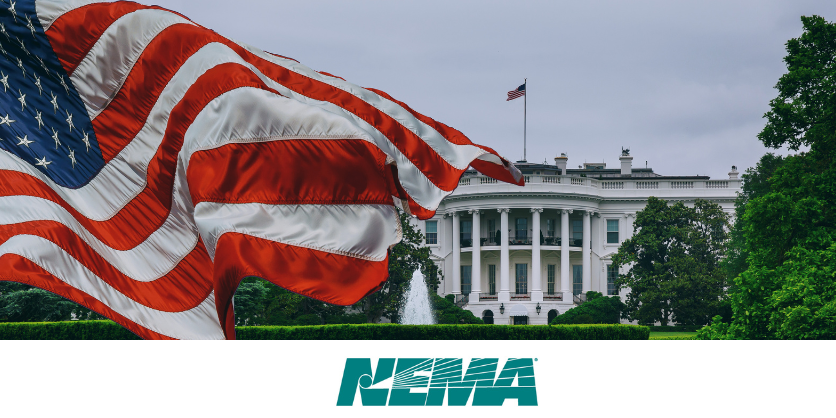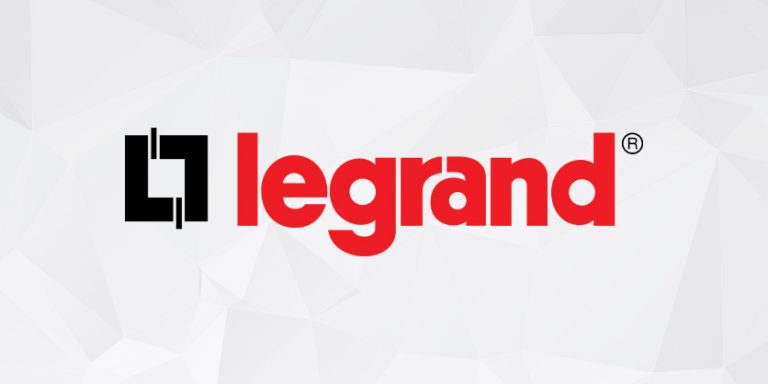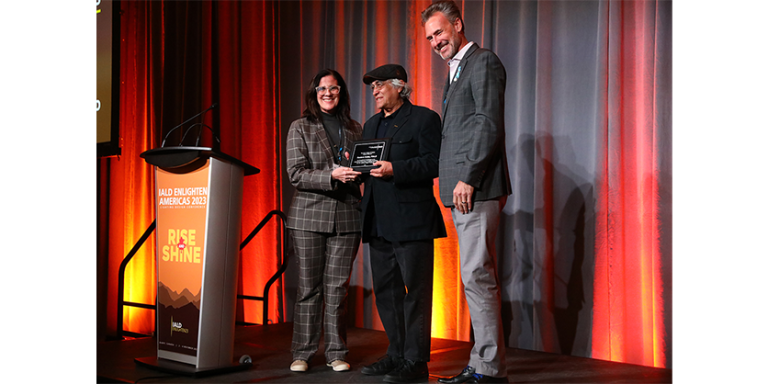NEMA Leads Coalition Pushing for Action from Biden Administration on Build America Buy America Requirements

Unclear domestic content rules are stalling implementation of clean energy projects funded by Infrastructure Investment and Jobs Act, Inflation Reduction Act, and CHIPS Act
The National Electrical Manufacturers Association (NEMA) today, led a coalition of trade associations, including the American Public Power Association (APPA), Information Technology Industry Council (ITI), National Association of Electrical Distributors (NAED), National Electrical Contractors Association (NECA) and National Rural Electric Cooperative Association (NRECA), in a letter to senior Biden administration officials expressing concern over the administration’s Build America Buy America (BABA) guidelines. The letter, sent to Mitch Landrieu, Senior Advisor and Infrastructure Coordinator and John Podesta, Senior Advisor to the President for Clean Energy Innovation and Implementation, emphasizes industry concerns that BABA guidelines, as written, will prohibit the ability for both the Administration and industry to achieve the policy goals of the Infrastructure Investment and Jobs Act (IIJA).
Further, the letter asserts that the domestic content requirements within BABA are unclear and do not reflect supply chain realities faced by U.S. manufacturers. This is leading to confusion among industry and delays for already backlogged infrastructure and clean energy projects, spurring the need for this outreach.
“Electrical manufacturers are eager to implement the Bipartisan Infrastructure Law, electrify our economy, and rebuild our nation’s aging infrastructure. However, the administration’s current BABA domestic content rules are currently standing in the way of those ambitions,” said NEMA President & CEO, Debra Phillips. “For well over a year we have been communicating directly with all levels of the Biden administration the importance of clear, consistent, and strategically crafted BABA guidelines that will allow U.S. industry a realistic path to compliance while fulfilling the President’s infrastructure vision. Nevertheless, our members, other industry associations manufacturers, contractors and suppliers remain seriously concerned about the challenges they are facing with these domestic content rules. Without the recommended flexibility to the BABA guidelines, as outlined in our letter, everyone’s ambitious bipartisan infrastructure plans will fall far short.”
“The Biden Administration’s counterproductive Buy America requirements have prevented much-needed investments from reaching the most in-need communities, undercutting the administration’s important infrastructure goals,” said ITI President & CEO, Jason Oxman. “To capitalize on these once-in-a-generation investments and deliver on his promises for improved infrastructure and job growth, President Biden should provide common-sense waivers so that communities can leverage global supply chains and harness the best and most cost-effective technology available.”
“We appreciate our partners at NEMA taking the lead on this important issue. The scope of the opportunity presented by the Bipartisan Infrastructure Law, and other electrification initiatives is so large that we will need maximum flexibility to provide the material and for our customers to supply the labor to get the work done,” said NAED Interim President, Ed Orlet. “Washington has a way of attaching strings to good policy that makes its implementation more difficult than necessary. We’ll keep working with our coalition partners to educate regulators on how well-intentioned rules can inhibit the progress of badly needed infrastructure projects.”
The letter emphasizes the following recommendations:
• Clear and consistent guidance across all states and territories: The federal government should provide consistent guidance and program rules across federal agencies and programs for implementing BABA provisions. Currently, product supply chains face different requirements when supplying products via federal procurement, to a federally funded infrastructure project, and to an IRA-supported clean energy projects.
• Include American labor in the cost of components: Including labor costs would promote American jobs, consistent with both Congress’s intent in the IIJA and the administration’s goal to support good-paying manufacturing jobs.
• Utilize existing free trade agreements: Leveraging existing trade agreements with our allies will eliminate bottlenecks, expedite commerce, and secure supply chains.
In April 2022, the Office of Management and Budget (OMB) Made in America Office released its BABA implementation guidance. Over that time, NEMA and our partner organizations have advocated for a policy approach that takes real-world conditions into account. In the last year, NEMA has met with federal agencies as well as the White House on multiple occasions and submitted written comments on multiple dockets including the OMB’s proposed guidance, issued on February 9, 2023.
About APPA
The American Public Power Association is the voice of not-for-profit, community-owned utilities that power 2,000 towns and cities nationwide. We represent public power before the federal government to protect the interests of the more than 49 million people that public power utilities serve, and the 96,000 people they employ. Our association advocates and advises on electricity policy, technology, trends, training, and operations. Our members strengthen their communities by providing superior service, engaging citizens, and instilling pride in community-owned power.
About ITI
The Information Technology Industry Council (ITI) is the premier global advocate for technology, representing the world’s most innovative companies. Founded in 1916, ITI is an international trade association with a team of professionals on four continents. We promote public policies and industry standards that advance competition and innovation worldwide. Our diverse membership and expert staff provide policymakers the broadest perspective and thought leadership from technology, hardware, software, services, and related industries. Visit www.itic.org to learn more. Follow ITI on Twitter for the latest updates.
About NAED
NAED is the trade association for the $70+ billion electrical distribution industry. Through networking, education, research, and benchmarking, NAED helps electrical distributors increase profitability and improve the channel. NAED’s membership operates in approximately 5,100 locations internationally.
About NRECA
The National Rural Electric Cooperative Association (NRECA) is the national trade association representing nearly 900 not-for-profit electric cooperatives and other rural electric utilities. America’s electric cooperatives are owned by the people that they serve and comprise a unique sector of the electric industry. From growing exurban regions to remote farming communities, electric cooperatives power one in eight Americans and serve as engines of economic development for 42 million people across 56 percent of the nation’s landscape. Electric cooperatives are focused on providing affordable, reliable, and safe electric power in an environmentally responsible manner and support common sense solutions to environmental impacts.
About NEMA
The National Electrical Manufacturers Association (NEMA) represents over 300 electrical equipment and medical imaging manufacturers that make safe, reliable, and efficient products and systems. Together, our industries are responsible for 1.65 million American jobs and contribute more than $200 billion to the U.S. economy.







